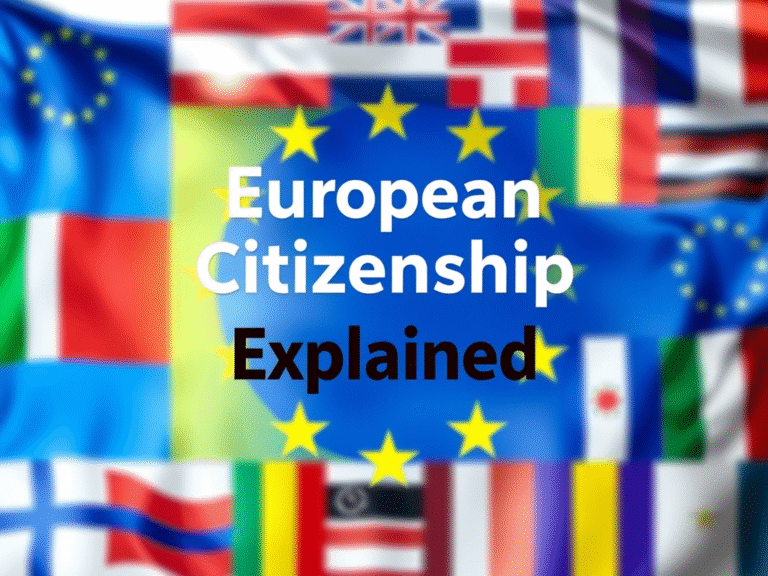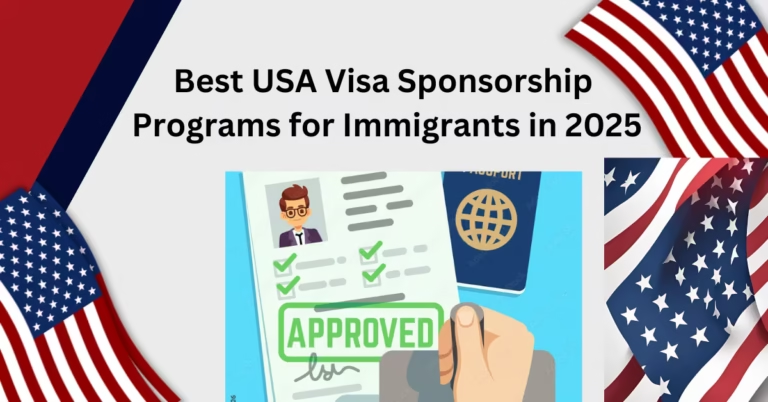Challenges in Obtaining Work Visa Sponsorship in Europe
So, you dream of living and working in Europe? Picture yourself strolling through charming cobblestone streets after a day at the office, or maybe enjoying a weekend getaway to a new country. It’s an exciting thought! Many skilled professionals around the world share this aspiration. But before you start packing your bags, it’s crucial to understand a significant hurdle: the challenges in obtaining work visa sponsorship in Europe.
Let’s be honest, landing a job in Europe is one thing, but securing the necessary work visa sponsorship is another ball game entirely. It’s like finding the perfect puzzle piece, but the edges need to match perfectly with strict rules and regulations. This guide will break down the common obstacles you might face on this journey.
Why is Getting Sponsored in Europe Such a Big Deal?
Simply put, most European countries have laws in place to prioritize their citizens and residents for job opportunities. When a company wants to hire someone from outside the European Union (EU) or the European Economic Area (EEA), they often need to prove that no suitable candidate within those regions could fill the role. This is where visa sponsorship comes in. It’s the company officially backing your application and vouching for your unique skills.
But here’s the rub: getting a company to go through this extra effort isn’t always easy. Let’s dive into the specific challenges in obtaining work visa sponsorship in Europe.
1. The High Hurdle of Competition:
Think of the global talent pool. Europe is a desirable destination for skilled workers worldwide. This means that for every sponsored position, there are likely numerous highly qualified applicants vying for the same opportunity. Companies can be overwhelmed with applications, making it tough for your profile to stand out. It’s not just about having the skills; it’s about being the best fit amongst a sea of talent.
2. Strict Eligibility Criteria: Are You the “Right” Fit?
Each European country has its specific requirements for work visas. These can include:
- Specific Skill Sets: Many countries focus on attracting professionals in sectors facing skills shortages, like technology, healthcare, and engineering. If your expertise doesn’t align with these in-demand areas, getting sponsorship can be significantly harder.
- Educational Qualifications: You’ll often need specific degrees or certifications that are recognized in the European country you’re targeting. Foreign qualifications may need to be evaluated and validated, adding another layer of complexity.
- Work Experience: Many visa programs require a certain number of years of relevant professional experience. Fresh graduates or those with limited experience might find it challenging to meet these requirements.
- Language Proficiency: While English is widely used in many European workplaces, some countries may require proficiency in their national language, especially for certain roles or industries.
- Salary Thresholds: Many countries have minimum salary requirements for sponsored workers. This ensures that foreign workers aren’t undercutting local wages and that the job is considered a skilled position.
Making sure you tick all these boxes for your chosen country is a crucial first step.
3. The Often Lengthy and Complex Application Process:
The paperwork involved in visa sponsorship can be daunting. It involves gathering numerous documents, filling out intricate forms, and navigating bureaucratic processes. Both the employee and the employer have responsibilities in this process, and any misstep or missing document can lead to delays or even rejection.
Think about it: companies have their own business to run. Dealing with complex immigration procedures takes time and resources. Smaller companies might simply not have the capacity or expertise to navigate these intricacies.
4. Employer Hesitation and Lack of Awareness:
While many European companies actively seek international talent, some are hesitant to sponsor for various reasons:
- Cost: Sponsoring a foreign worker involves direct costs like visa application fees and potentially legal fees. There are also indirect costs associated with the time and effort involved in the process.
- Administrative Burden: As mentioned earlier, navigating the legal requirements and paperwork can be a significant undertaking for employers.
- Uncertainty and Risk: There’s always a chance that a visa application could be rejected, even after the company has invested time and resources.
- Lack of Familiarity: Some smaller or less internationally-oriented companies might simply not be familiar with the process or understand the benefits of hiring foreign talent.
5. The Impact of Labor Market Tests:
Many European countries implement a “labour market test” as part of the visa sponsorship process. This requires employers to demonstrate that they have genuinely tried to recruit within the local and EU/EEA labor market before offering the position to a foreign national. This can involve advertising the position for a certain period and providing evidence that no suitable local candidates were found. Successfully navigating this test can be a significant hurdle.
6. Financial Implications for Both Sides:
The costs associated with work visa sponsorship aren’t just borne by the employer. As an applicant, you may need to pay for visa application fees, document translations, medical examinations, and potentially relocation costs. These expenses can add up quickly.
7. Language and Cultural Barriers (Sometimes):
While not always a direct barrier to sponsorship, language and cultural differences can sometimes play a role. Companies might prefer candidates who are already familiar with the local language and culture, as this can facilitate smoother integration into the workplace.
8. The Risk of Rejection and Delays:
Even if you and your prospective employer have done everything correctly, there’s always a possibility that your visa application could be rejected or significantly delayed. Immigration policies and priorities can change, and unforeseen circumstances can arise. This uncertainty can be frustrating and disruptive.
Navigating These Challenges: What Can You Do?
While the challenges in obtaining work visa sponsorship in Europe are real, they are not insurmountable. Here are some key steps you can take:
- Focus on In-Demand Skills: Research the skills that are currently in high demand in your target European country. Consider upskilling or gaining experience in these areas to increase your attractiveness to employers.
- Target Companies That Sponsor: Actively look for companies that have a history of sponsoring foreign workers. Their HR departments will likely be more familiar with the process. You can often find clues on their websites or through online job boards.
- Network Effectively: Connect with professionals in your field who are already working in Europe. Attend industry events (even virtual ones) and build relationships. Networking can sometimes lead to job opportunities and valuable insights.
- Prepare a Strong Application: Ensure your resume and cover letter are tailored to the specific requirements of the job and the country. Highlight your unique skills and experience that make you a standout candidate.
- Understand the Specific Requirements: Thoroughly research the visa requirements for your target country. Don’t rely on general information; delve into the specific rules and regulations.
- Be Patient and Persistent: The visa sponsorship process can take time. Be prepared for delays and don’t get discouraged by setbacks. Follow up professionally and maintain a positive attitude
Remember, securing sponsorship is often the final step after landing a job offer. To learn more about the initial stages, check out our guide on “How to Apply for Visa Sponsorship Jobs in Europe.” This article will provide valuable insights into finding those initial opportunities.
Furthermore, understanding the different pathways to sponsorship is crucial. Explore our article on “Types of Visa Sponsorship Programs for Skilled Workers” to familiarize yourself with the various options available in different European countries.
Conclusion
The path to securing work visa sponsorship in Europe is undoubtedly filled with challenges. From navigating complex regulations and facing stiff competition to understanding employer hesitations and managing costs, the journey can feel like an uphill climb.
However, by understanding these hurdles, focusing on in-demand skills, and strategically targeting companies, you can significantly improve your chances of success. Remember that persistence and thorough preparation are your greatest allies in overcoming these obstacles and ultimately achieving your goal of working in Europe.






